ECCUM project results
ECCUM project meeting was held at Turin Polytechnic University in Tashkent, Uzbekistan on June 27-29, 2016. Project participants learnt about Erasmus+ project activities in Uzbekistan and the next Call for Proposals; Possibilities for students/staff for the USC. Future project proposals to EACEA for mobilities; Presentation of Bologna Process – Possibilities for students/staff, English Language test in the ECCUM Project.
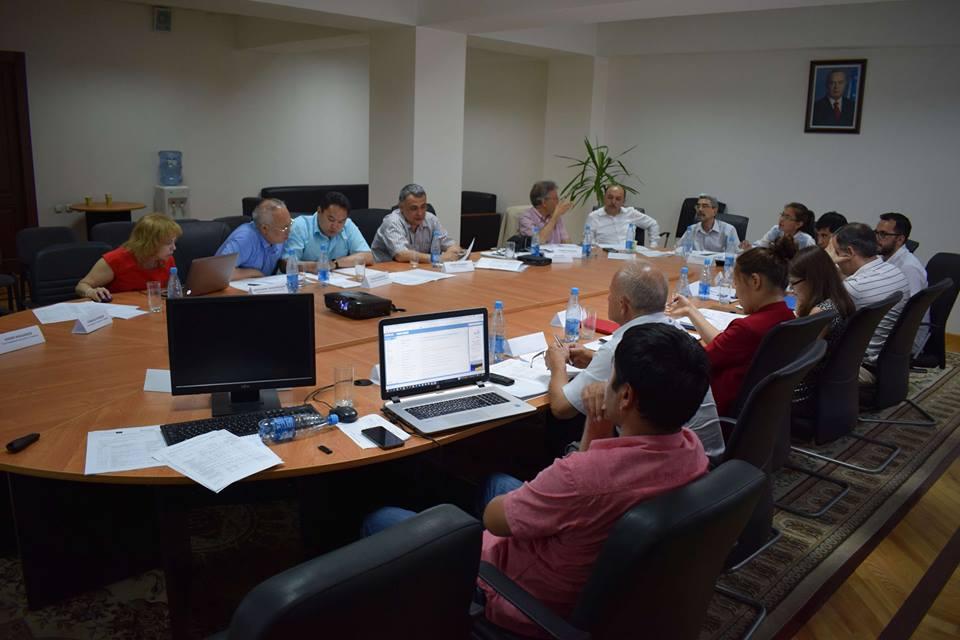
ECCUM project participants discussed the following issues: ECCUM: What has been done? What should be done?
Common curriculum in Mathematical engineering and the Aspects of student’s mobility have been discussed; Launching Mathematical engineering Master courses in CA partner universities; Status of creation of Computer centers and purchase of equipment; Teaching the English language course for Academic staff of partner universities. During the meeting it was reported that A.Baitursynov KSU is launching “Mathematical Engineering” Master pilot program.
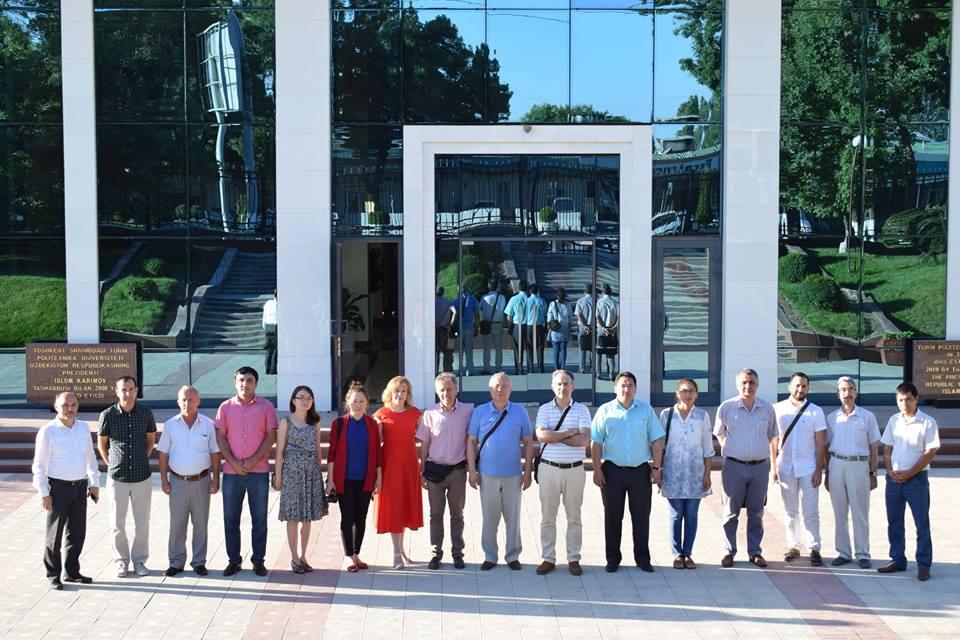
The key results of the Coordination meeting:
- Approval of Program Profile: Mathematical Engineering qualification description, master program learning outcomes, master program curriculum
- Approval of Sustainability Strategy
- Approval of Dissemination Strategy
________________________________________________________
Ismailov A.O., Zhuaspayev T.A., Serkebayeva L.T., Lata V.V. participated in the Training of CA partner university academic staff on improving capacity on using software in mathematical engineering master program from 16/01/2017 to 27/01/2017 at the University of Santiago de Compostela, Spain. Academic staff studied 6 hours every day to master MathLab R2012a and Comsol Multiphysics 4.3. The classes were held in computer class with individual working place for each training participant. Professor Francisco Pena taught MathLab, and Prof. Dolores Gomes Pedreira trained the academic staff in Comsol Multiphysics.
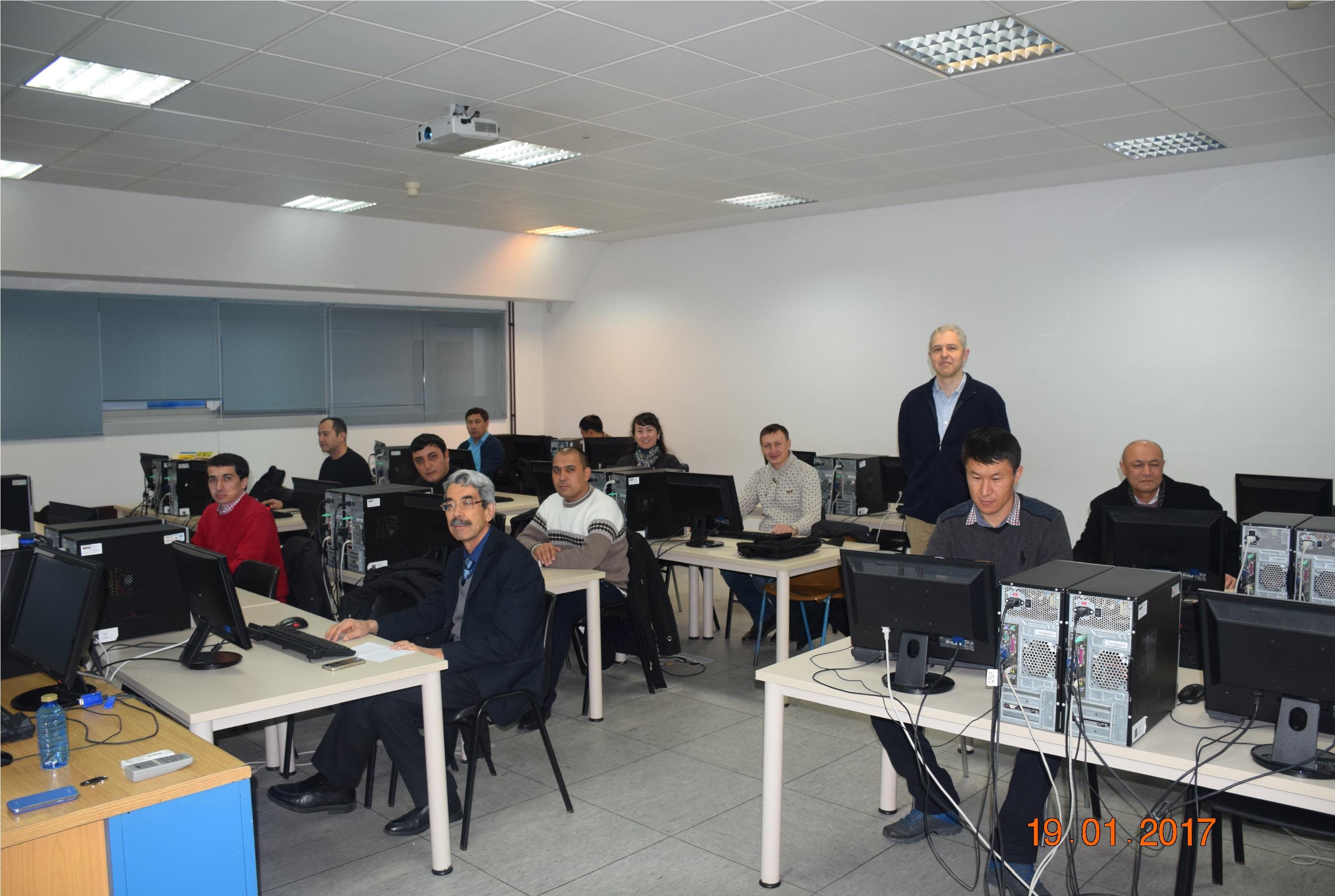
To gain access to the training materials, the organizers of the training from the University of Santiago de Compostela created a Google group, which was accessible at any time and from any computer connected to the Internet. For the convenience and preservation of personal documents, each participant in the training was offered personal logins and passwords with access to the local university network.
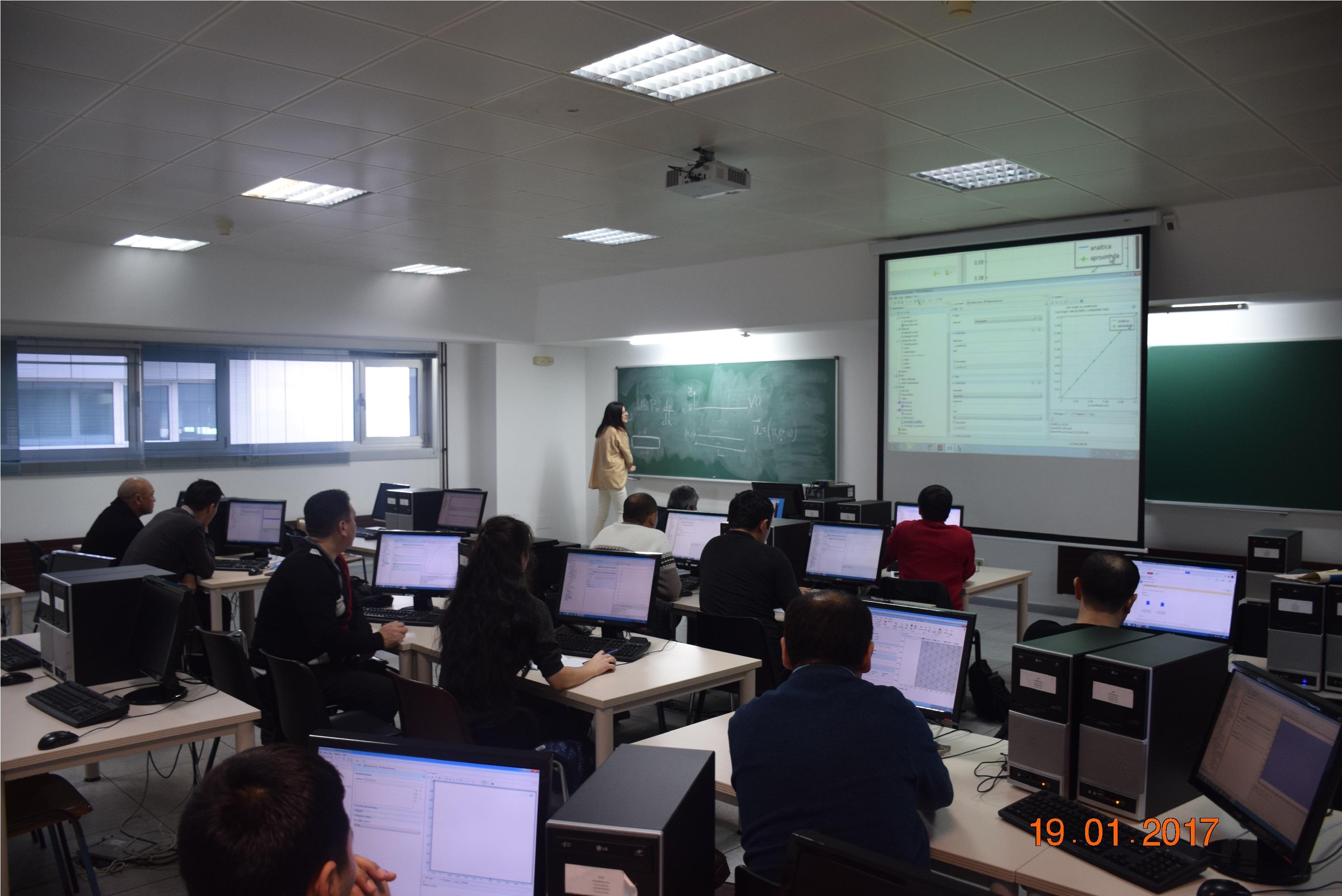
According to the contents of the training curriculum, the teachers proposed the following questions for consideration (theoretical material, practical material with the use of the corresponding software):
- Program 1: introduction to Mathlab R2012a, data types, graphing, Mathlab files, Mathlab algorithms, numerical methods in Mathlab, programming in the Mathlab environment;
- Program 2: introduction to Comsol Multiphysics 4.3, flow between parallel plates, study of Couette flow, flow through annular space, transient example of heat transfer, mass transfer, fluid flow.
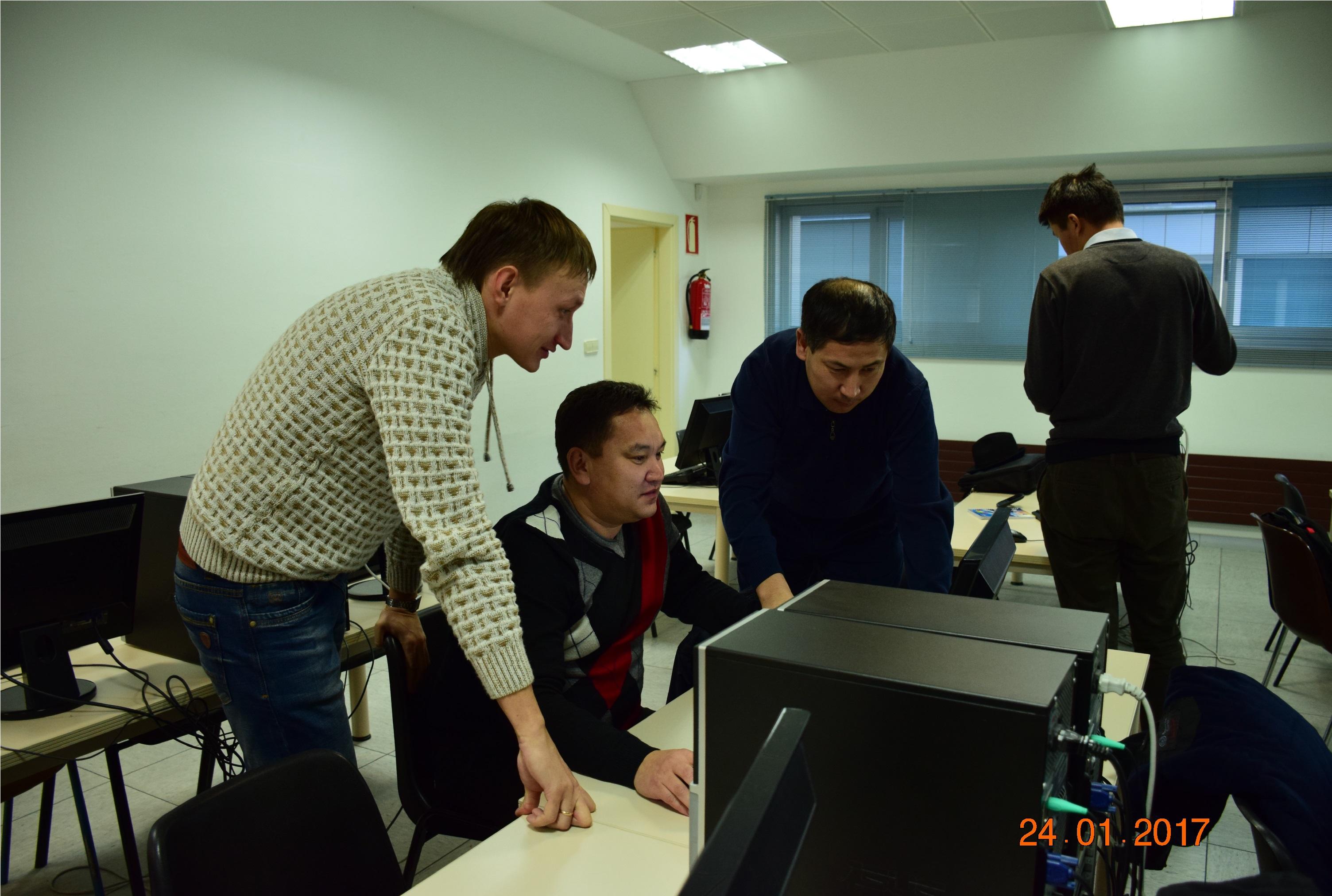
The experience gained in the use of Mathlab R2012a software, Comsol Multiphysics 4.3 will be distributed among the faculty of the university, through methodological seminars. Mathlab, Comsol Multiphysics, in addition to the disciplines of the Master's program in Mathematical Engineering, will be included in the curriculum content of the disciplines, both at the bachelor's level and at the magistrate level in the technical and natural sciences.
On February 22-23, 2018 at the Polytechnic University of Turin, Italy, a coordination meeting on the ECCUM project was held. The participants of the meeting were welcomed by Anita Tabacco, the Vice-rector for Academic Affairs at the Polytechnic University of Turin, she spoke about the university, international cooperation, the experience of interaction between the university and employers. The universities of Kazakhstan and Uzbekistan presented reports on the implementation of the project. It should be noted that in Kazakhstan both partner universities have been teaching the developed master programme for two years. The universities of Uzbekistan received a license for the developed master's program in Mathematical Engineering, which makes it possible to recruit students.
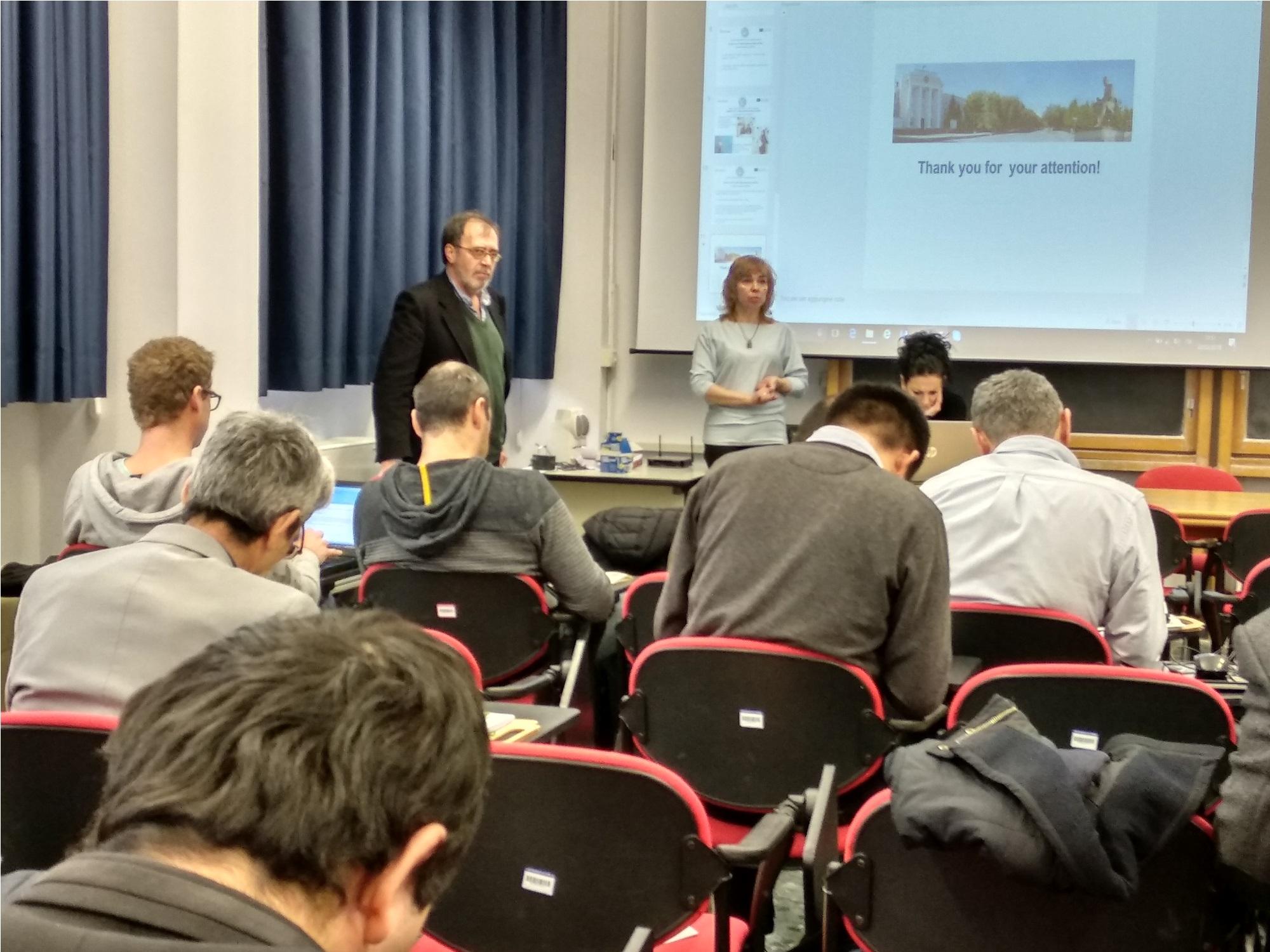
The universities of Kazakhstan and Uzbekistan implemented the following key actions for the project:
-
Development of the course materials of the curriculum;
-
Establishment of Computing Centers;
-
Development of the common platform among Computing Centers established by the project;
-
English language trainings;
-
Trainings on using the engineering software tools;
-
Retraining of the academic staff. The last two trainings will take place in March 2018 at A. Baitursynov Kostanay University by professor Jeronimo Rodriguez and in April 2018 - the International University of Information Technologies, Almaty will welcome a EU professor to train academic staff and master students.
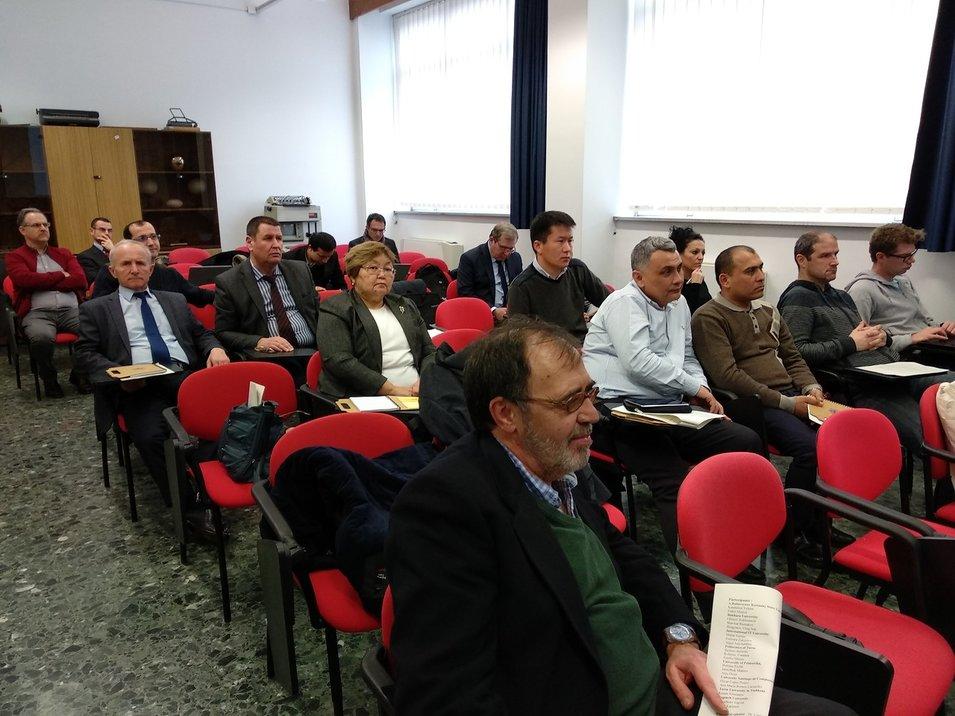
One of the main issues discussed during the meeting is the forthcoming external audit of the project by Dr. Carlos Machado, an international expert in the field of education. Carlos Machado introduced the participants to the tasks and methodology of the audit. As the main tasks facing the partners of the project, the following are highlighted: the use of a common platform among the computer centers created by the project, training using videoconferences; work of the website of the project http://eccum.famnit.upr.si/en/. Partners should also ensure the dissemination and sustainability of the project, focusing on work with potential employers.
One of the key objectives of ECCUM project is building professional capacity of academic staff. Professor Jerónimo Rodríguez Garcia, Department of Applied Mathematics, University of Santiago de Compostela,Spain taught academic staff and master students of Faculty of Information Technologies at A.Baitursynov KSU. The main focus was on An Introduction to the Finite Element Method. This is an introductory course on the finite element method applied to the resolution of boundary value problems associated to coercive partial differential equations. The method is progressively introduced by applying it to a model problem, namely the Poisson's-Laplace's equation. The content covered both theoretical and practical aspects of the method, involving MatLab
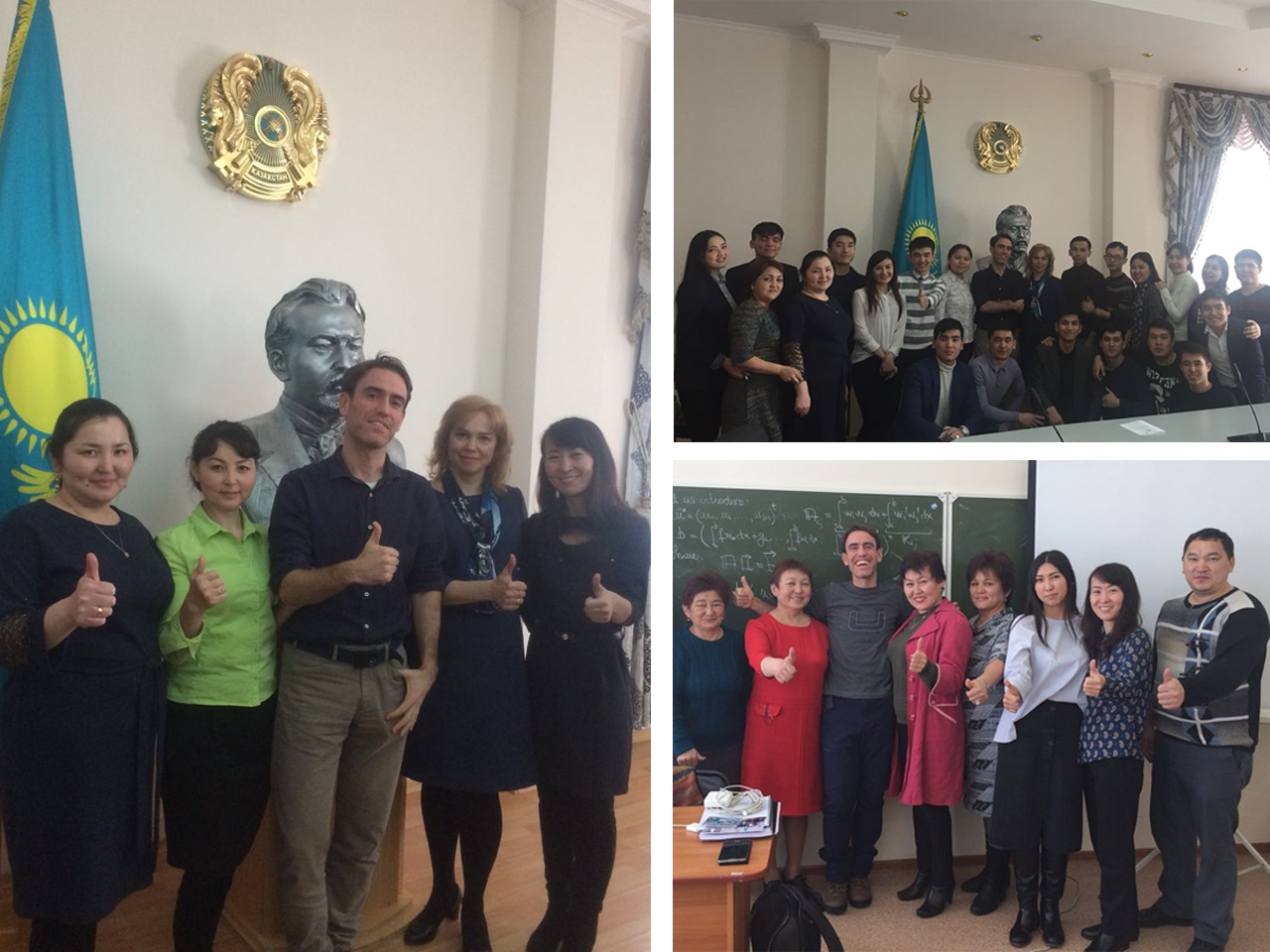
The Roundtable discussion organized on March 15, 2018 welcomed the university academic, administrative staff and students to learn about Engineering Education at the University of Santiago de Compostela, Spain. Two topics caused the interest of the discussion: Double degree educational programmes implemented between two specialties of the university; use of video-conferencing to teach master students in different cities of Spain. ECCUM project was presented to the audience, as well as Mathematical Engineering master programme.
From 3 to 7 of September, 2018, Faculty of Mathematics, Natural Sciences and Information Technologies (University of Primorska, Slovenia) hosted the educational seminar for the members of the ECCUM project. The seminar was focused on application of such software products as COMSOL Multyphysics, MATLAB and Ansel. The matters of practical implementation of MATLAB software package were presented by Professor Francisco Pena (University of Santiago de Compostela, Spain), the pecularities of working with COMSOL Multyphysics software were presented by Professor Dolores Gomez (University of Santiago de Compostela, Spain).
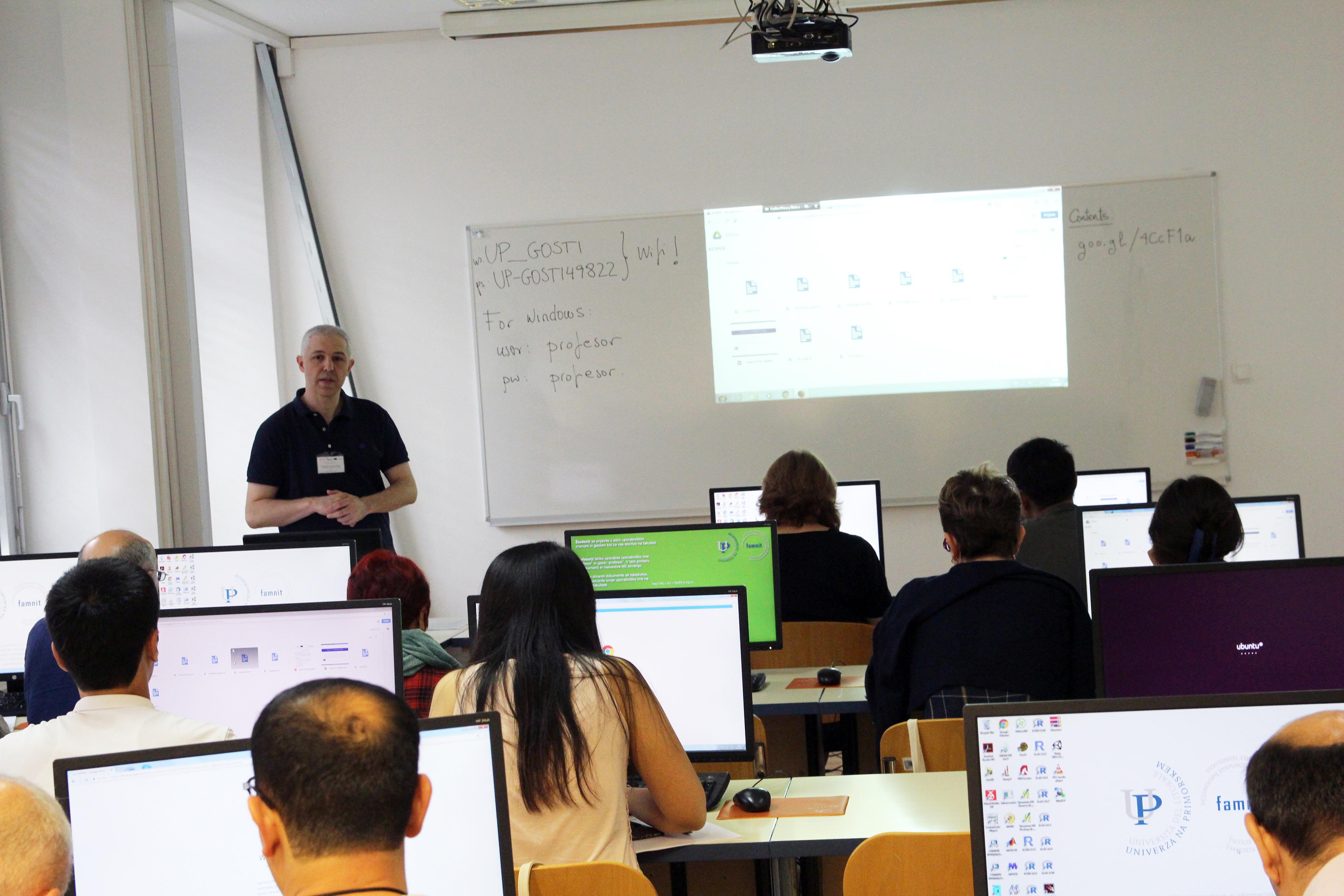
The training also had its focus of the matters of using numerical methods and partial differential equations. During the event, A.Baitursynov Kostanay State Universtiy was presented by the lecturers of Departments of Informatics and Information Systems.
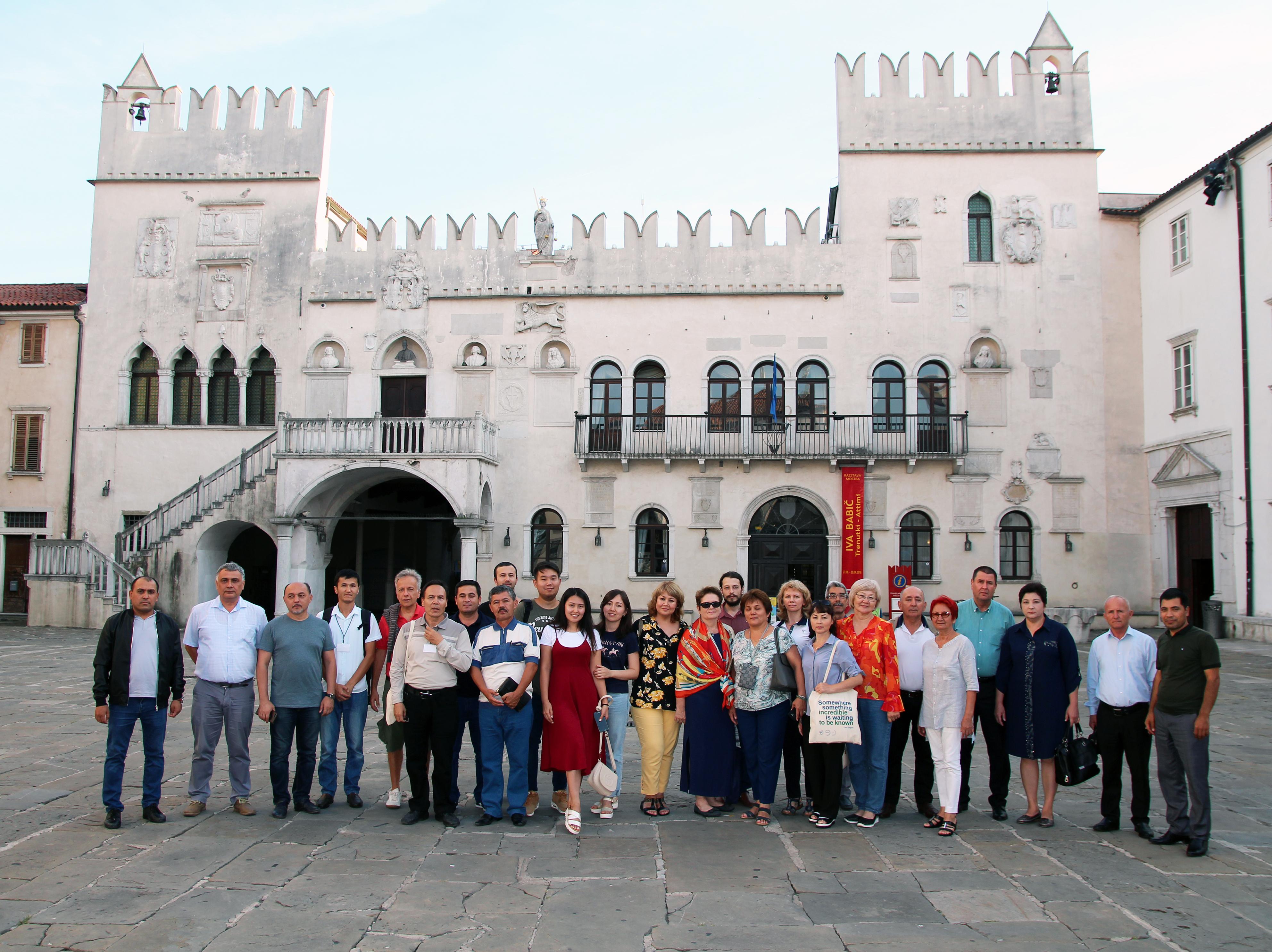
September 17-19, 2018. University of Santiago de Compostela hosted the last meeting within the framework of the ERASMUS+ ECCUM project. During the first day, general overview of the project took place, along with the analysis of weak and strong sides of cooperation built and activities undertaken.
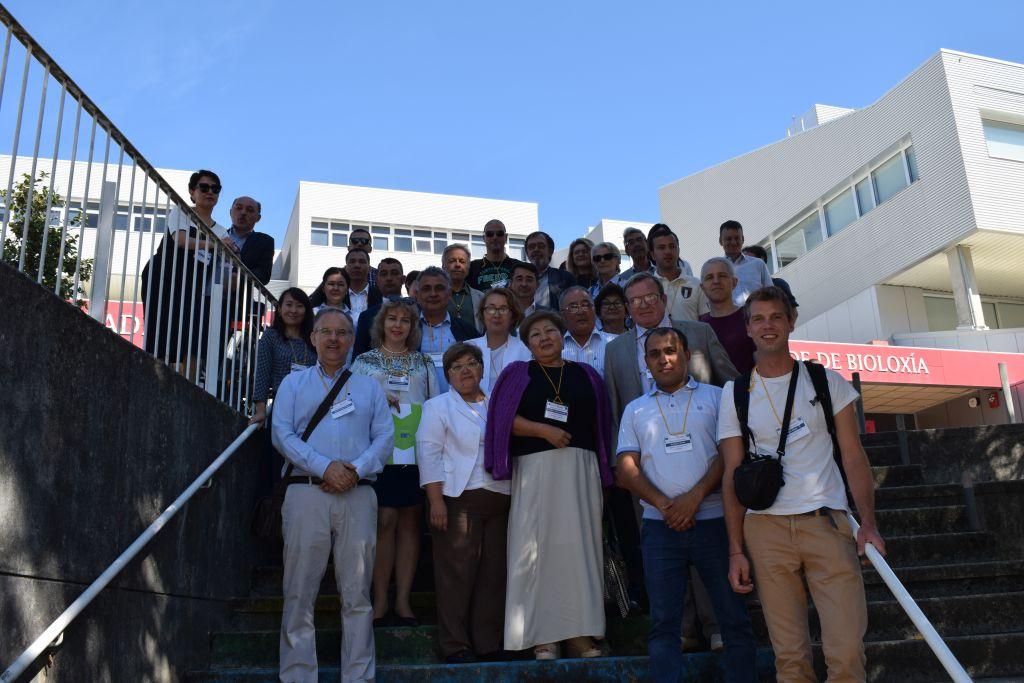
The achievements of A.Baitursynov KSU within the framework of the project were presented by Yelena Kandalina, Head of International Relations Office:
- Created Master's programme in Mathematical Engineering, including: the compiled competency model for the master programme, the Curriculum, the syllabuses and the content of disciplines;
- Establishment of Computing Centre;
- Web platform: The platform has been set up http://eccum.ksu.edu.kz;
- English training: 2 groups of 27 teachers, 144 hours/ 30 weeks, from April 1, 2016 to December 30, 2016;
- Impact: The Information Systems Department launched the master program in Mathematical Engineering based on the license for “Information Systems” master program and the bachelor program in Mathematical Engineering. Professional capacity of 30 academic staff of the Information Technologies Faculty was improved. Replication of MATLAB and COMSOL training at KSU;
- Sustainability: Bachelor and Master students trained in Mathematical Engineering. Use of the Computing Center (with MatLAB and COMSOL) in the education process. Development of Methodological Guidelines for COMSOL and MatLAB in Kazakh language. Sustainable partnership and collaboration with consortium members.
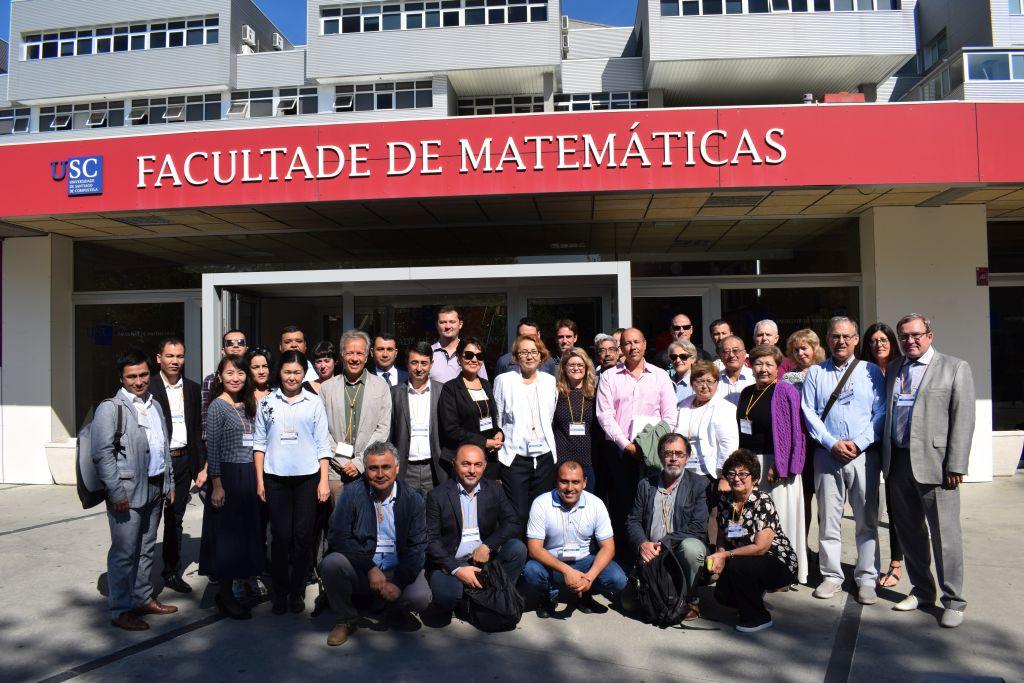
The second and the third days of the meeting were devoted to discussion about final report preparation and new avenues of collaboration and project proposals. On average, around 5 participants from partner universities took part in the event. A.Baitursynov KSU was represented by Anara Utemissova (Head of Department of Mathematics), Fedor Maiyer (Vice Rector on Academic Work and Education) Lyazzat Serkebayeva (Vice Dean of IT Faculty on Education) and Yelena Kandalina (Head of International Relations Office).

